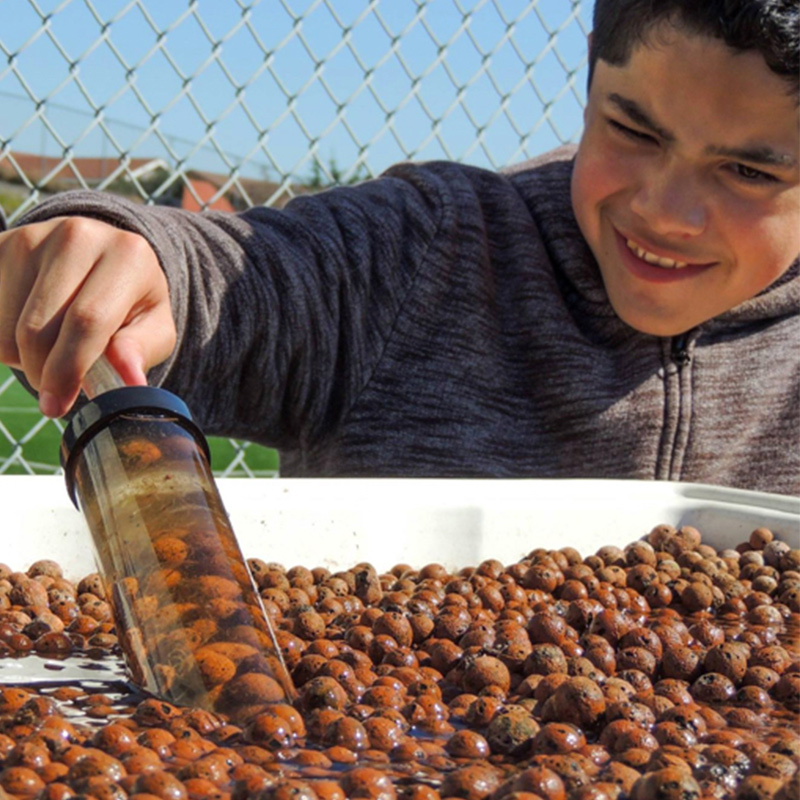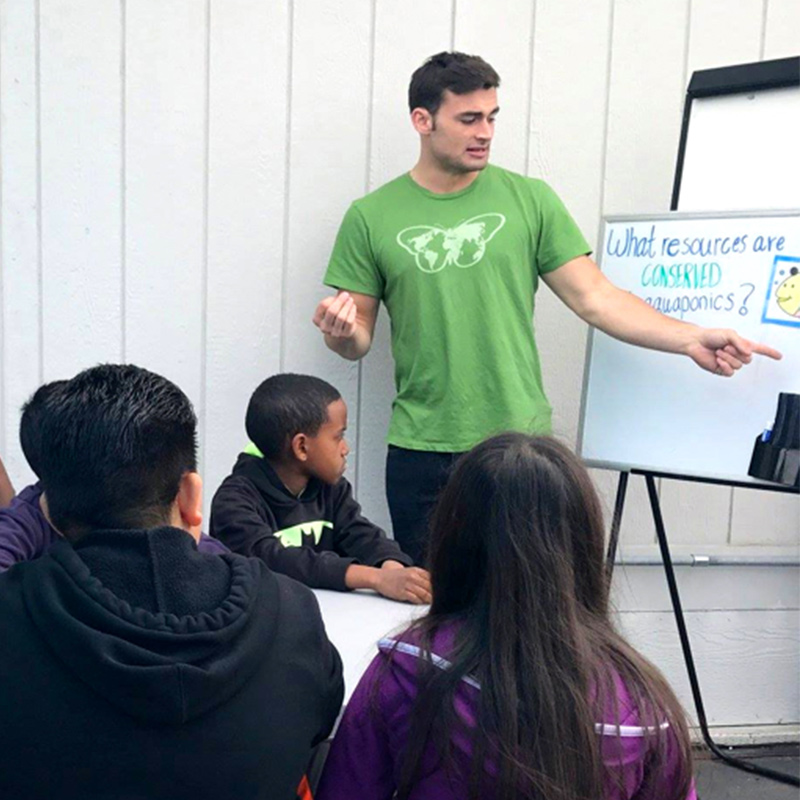Problems With Agriculture In The US
As populations continue to rise and access to land and fresh water grows more scarce, we must turn to more efficient methods of growing food.
San Diego is one of the most biologically diverse areas in the continental U.S. We see it as our duty to protect our home’s unique species and landscapes. Our aquaponics systems use 0 pesticides and 90% less land and water, allowing us to feed more people healthy food with less environmental impact.
The path to sustainability starts with educating our planet’s future keepers. We provide young environmentalists, scientists, and leaders with the tools they need to think creatively and make informed decisions for positive economic, cultural, and ecological change.
The Aquaponics Innovation Center serves as a state-of-the-art research facility where people can see a demonstration of truly efficient aquaponics in action. We donate the nutrient-dense vegetables we grow to local people in need.

1 in 7 San Diego residents live in food-insecure households. According to a 2016 study by the SD Hunger Coalition, nearly a third of these 486,000 individuals are children.

We provide communities with the education, job training, and resources they need to become self-sufficient in the way they grow and access food.
With each ECO-Cycle we place in a homes, schools and businesses, we deepen the connection between individuals and their food system. To date, we have provided over 2,000 ECO-Cycles around the country, each offering the freedom to grow healthy resource-conscious food and a better understanding of the natural world.


Notifications